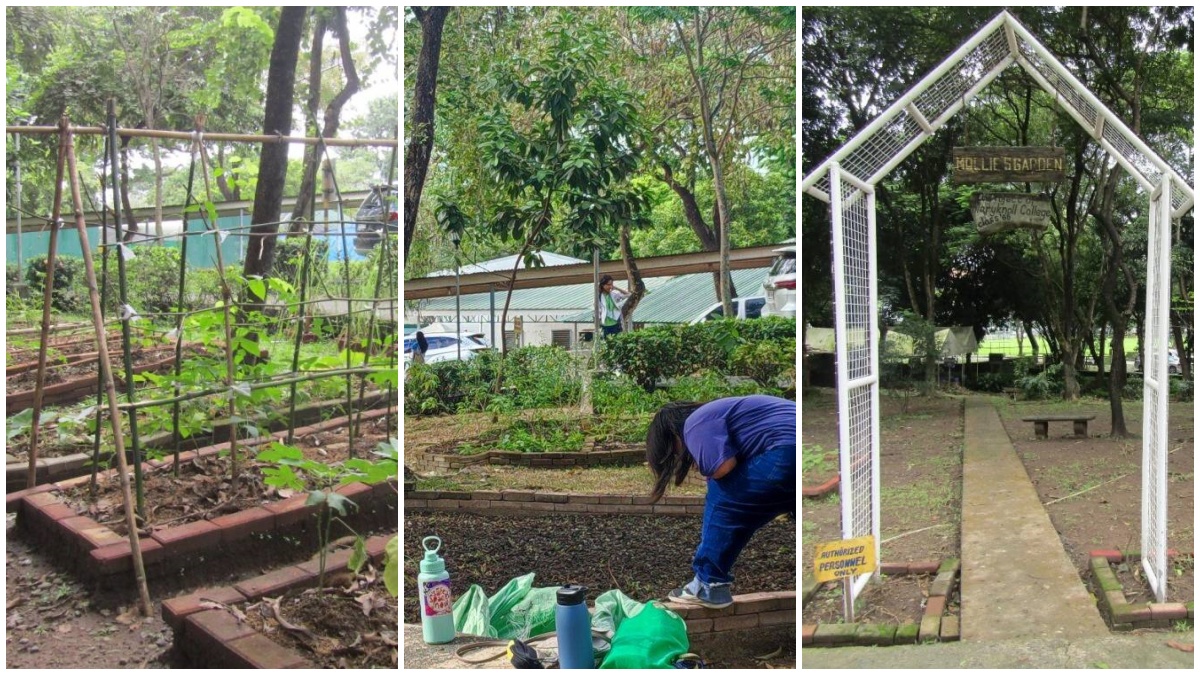
SPIRITUALITY IN WORKING THE SOIL For their volunteer work, Grade 12 students of Miriam College tilled the garden plots of the Mother Mary Joseph Community for planting, working an hour a day under supervision. CONTRIBUTED PHOTOS
What kind of satisfaction do people find in plants and gardening?
This year, Miriam College Grade 12’s program Miriam Spirituality in Action (MISIA) asked the Environmental Studies Institute (ESI) to take in some interested students for their volunteer work. ESI proposed that the students go into gardening. Specifically, they were to till the garden plots of the Mother Mary Joseph Community (MMJ) for planting.
Learning moments
The students started their volunteer work with an orientation session about ESI and the MMJ garden, and the importance of connecting with nature. Their work included tilling the soil, pounding eggshells, removing weeds and rocks, planting taro and watermelon, and watering the plants in the garden. They worked an hour a day under the supervision of a superior.
In the course of their work, the volunteer students saw the little rainbow they made when watering the plants. They observed eggplants growing on the branches of the plant, and insects and birds moving everywhere. The trees, meanwhile, provided them cool air and shade for rest.
These learning moments became a core memory for many of the Miriam students.
“I got to appreciate how it is to slow down … immersing oneself with nature. Aside from that, we got to work to provide a better place not just for ourselves, but for other people as well,” said one.“Doing volunteer work for the environment, no matter how small, made me think that I’m making a difference,” said another.A garden is a safe, healing, and peaceful space. Gardening is a form of active participation in the work of nature around us. In the act of gardening, we create a space of connection where we can converse and interact with ourselves and with each other.
Every day, yet radical
Gardening helped slow down the Miriam students’ academic pace, allowed them to breathe, and gave them a new set of experiences that may inspire them to do more for their communities and the environment.Seemingly an ordinary everyday task, gardening is a radical action that can make a difference in various ways, from securing food to reconnecting with the earth. And in the case of ESI introducing Miriam students to the wonders of a garden, it exercised its task of providing a different kind of learning: ecological education.
(ESI is one of the partner organizations of Inquirer ESG Edge.)